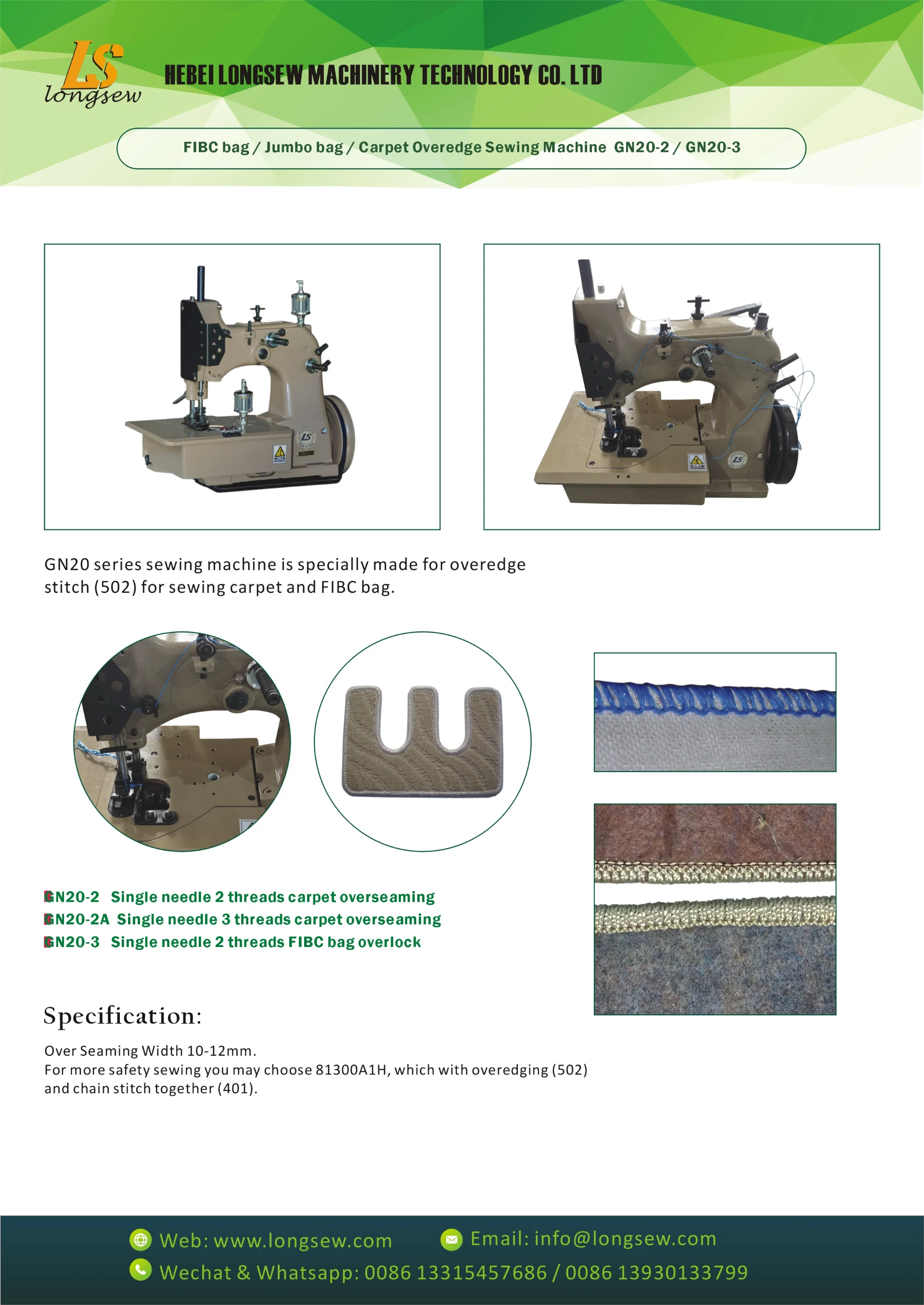Industrial Single Needle Sewing Machine for Efficient Lock Stitching Operations
The Industrial Single Needle Lock Stitch Machine A Backbone of Textile Manufacturing
The industrial single needle lock stitch machine represents a cornerstone of modern textile manufacturing, exemplifying efficiency, precision, and versatility. This type of sewing machine, often referred to simply as a lock stitch machine, plays a crucial role in producing a wide array of garments and fabric-based products, from clothing to home textiles.
At its core, the industrial single needle lock stitch machine operates on a straightforward principle. It uses a single needle and a bobbin thread to create a lock stitch, which is formed as the needle passes through the fabric, and the bobbin thread loops around the needle thread. This creates a secure stitch that is both strong and durable, making it ideal for high-volume production environments. The machine excels in sewing woven and knit fabrics, providing consistent results that meet the rigorous standards of the textile industry.
One of the most significant advantages of the industrial single needle lock stitch machine is its speed. These machines are engineered for heavy-duty use, capable of stitching at rapid speeds, sometimes exceeding 5000 stitches per minute. This high efficiency translates into increased productivity, allowing manufacturers to meet tight deadlines without compromising on quality. Additionally, the machine's robust construction ensures longevity, minimizing downtime and maintenance costs.
industrial single needle lock stitch machine

Versatility is another hallmark of the single needle lock stitch machine. Equipped with various presser feet and attachments, it can perform multiple sewing techniques, including straight stitching, hemming, and topstitching. Manufacturers can also adjust stitch length and tension, making it adaptable to different fabric types and thicknesses. This flexibility is essential in the fast-paced garment industry, where designs and materials frequently change.
As the fashion landscape evolves, the demand for automated solutions has grown. Modern industrial single needle lock stitch machines often incorporate advanced technology, such as electronic controls and computerization. These innovations allow for precise stitch settings, programmable patterns, and even integration with cutting and spreading machines, streamlining the entire production process.
Moreover, sustainability has become a focal point in textile production. The efficiency of industrial single needle lock stitch machines helps reduce fabric waste, as they allow for precise cuts and placements. Furthermore, their durability means they have a longer lifespan, reducing the need for replacement and, consequently, waste.
In conclusion, the industrial single needle lock stitch machine is more than just a sewing device; it is a vital asset in the textile industry. Its speed, versatility, and technological advancements make it indispensable for manufacturers seeking to produce high-quality garments efficiently. As the industry continues to evolve, this machine remains a key player, ensuring that businesses thrive in a competitive marketplace.
-
Boost Production Efficiency with a Pattern Sewing MachineNewsAug.29,2025
-
Industrial Excellence with the Best Heavy Duty Sewing MachineNewsAug.29,2025
-
Precision and Power with the Best Pattern Sewing MachineNewsAug.29,2025
-
Reliable Bulk Packaging Starts With the Right FIBC Sewing MachineNewsAug.29,2025
-
Advanced Packaging Solutions: Elevate Productivity with Jumbo Bag Sewing Machine and Industrial Stitching EquipmentNewsAug.29,2025
-
High-Performance Solutions for Bulk Packaging: FIBC Sewing Machine and MoreNewsAug.29,2025
-
Maximize Efficiency with an Industrial Cylinder Arm Sewing MachineNewsAug.28,2025


























